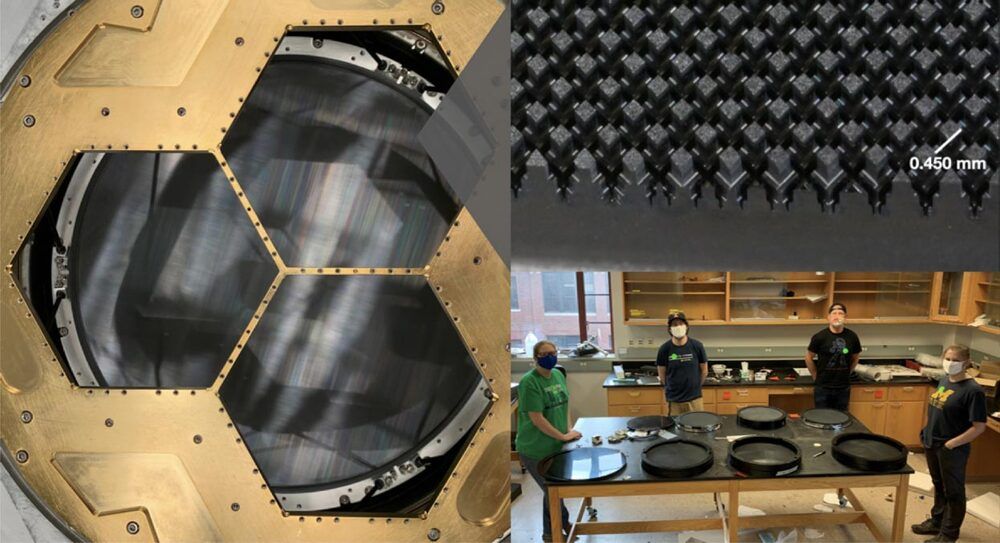The cosmic microwave background, or CMB, is the electromagnetic echo of the Big Bang, radiation that has been traveling through space and time since the very first atoms were born 380000 years after our universe began. Mapping minuscule variations in the CMB tells scientists about how our universe came to be and what it’s made of.
To capture the ancient, cold light from the CMB, researchers use specialized telescopes equipped with ultrasensitive cameras for detecting millimeter-wavelength signals. The next-generation cameras will contain up to 100000 superconducting detectors. Fermilab scientist and University of Chicago Associate Professor Jeff McMahon and his team have developed a new type of metamaterials-based antireflection coating for the silicon lenses used in these cameras.
“There are at least half a dozen projects that would not be possible without these,” McMahon said.
